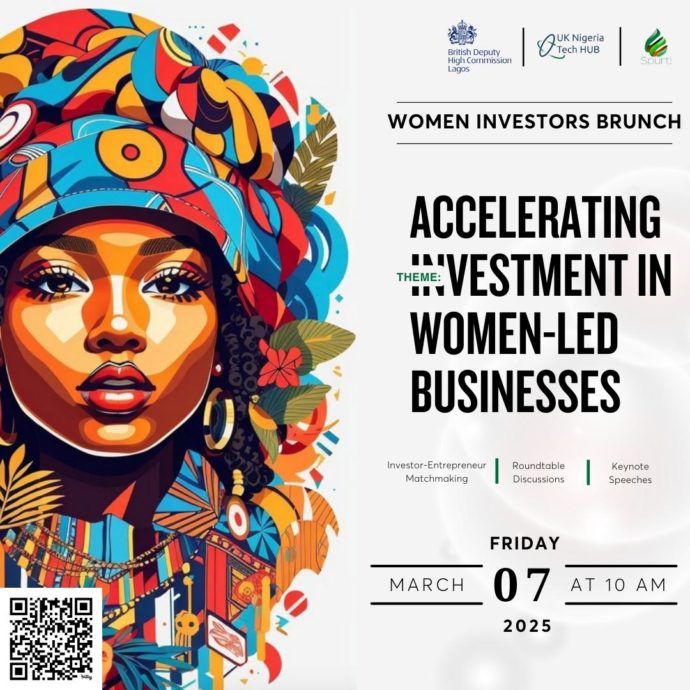Hi! I’m so glad you’re here.
I’m Jemimah Orevaoghene, an early-stage investor in the venture arm of one of Wall Street’s top investment banks. I started angel investing in African startups as a Yale sophomore, working a $17/hr job and saving $1,000 each semester to invest. During holiday breaks back home in Accra and Lagos, I hustled to find more founders for my next bets—no nepo baby funds, no old money or new money support system, just grit, hard work, networking, and Grace. My mission is to weekly equip you with all the information and tools I needed when I started my journey many moons ago. I’m very active on socials so feel free to connect there and lets grow this community. Hope you like it here!
In the last edition of the newsletter, we highlighted that to be a great Angel investor, you need to:
1) Find good companies
2) Get into good companies
3) Add value to your companies
We already laid out some key ways to find good companies; make sure you read here if you missed it.
Okay, so you found the company you are excited about! Congrats! But the problem is that you have no idea what the process of putting your money in looks like. In today’s newsletter, we will explore some methods and resources on the ground to keep in mind.
1) Co-invest along a traditional fund via a speacial purpose vehicle (SPV)
a. If any of the above sound like jargon, look below for our mini-glossary! This option is my favorite because you have a traditional fund already doing the due diligence on the investment, so you're just tacking your money alongside their investment. My favorite investment of 2024 was made this way. I got a call from a good investor friend. We hadn't spoken in a while, and he knew my taste swings heavily towards consumer businesses, so he was offering me joining the fund's SPV as an apology. Another myth to bust here is that you need $1MM to invest per deal.
Not only is this false, but when beginning your angel journey, you want to spread out your investment over time within the same company for when the company hits different milestones. I have invested as little as $1000 in companies, and many co-investment deals will begin at $5000. The only drawback with this is that, given the investment is alongside the fund, you will typically pay their 2% management fee and 20% carry.
Practical:
1) Not all funds have a co-investment opportunity for non-limited partners (LPs). These opportunities might be available at smaller/ more niche funds. If they do have SPV opportunities, a Principal/ Senior Associate is your best bet to get connected. I'll list my 4 favorites down below as well as some go to contact people
a. Microtraction:
Contact person: Ato Bentsi- Enchill (Principal)
b. 54 Collective:
Contact person: Ruhi Manek (Associate)
c. Ajim Capital:
Contact person: Calvin Rupango (Senior Associate)
d. Jedar Capital:
Contact person: Sherif Nessim (Founder and Managing Partner)
Instrument:
a) The fund will have already drawn up documents with lawyers, and it’s as easy as reviewing, ensuring they fit within your investment thesis, and signing off on a DocuSign; the transaction is complete post-wire, and any company updates will be flowed to you via the fund

2) Go straight to the founder (the earlier, the better)
Getting a hold of African founders building amazing businesses early is often the hardest part of this equation, but very possible. I like to track them down at the pitch competitions during the African business conferences across the business schools. So, think HBS African Business Conference, MIT African Business Conference, Oxford African Business Conference etc. I find that the pitch competitions that have cash prizes ($20K+) often attract the better quality companies.
Attend Demo Days for African-focused accelerators (virtual or in-person)!
Demo Days are an opportunity for founders to showcase their companies to rooms full of investors. The key part of using demo days right is to speak to the founders after their pitches and stay connected. Even if you're not ready to write a check, founders will usually add contacts to the list of investors they send periodic updates to, and this helps you keep track of how the company is performing over time. Most accelerators have a Demo Day of some sort, and these are usually recorded! I'll list a couple of my favorites below:
1. MEST Africa -> My absolute favorite. I use them for signaling for who the best software entrepreneurs are and what sectors are top of mind to build for
2. Techstars ARM Labs -> While the program has been discontinued, I'll still watch their previous Demo Days, given the strength of companies that graduate from the program. Shoutout to Oyin Solebo, who ran a PHENOMENAL program
3. Baobab Network -> Actually having a Demo Day today (3/12/2025). Link here. Reach out to Amber van der Wath for a replay link
4. Google for Startups Accelerator Africa -> Shout out to Folarin Aiyegbusi for being one of my best-thought partners in the space
5. Accelerate Africa -> Ran by the folks at Future Africa Fund and led by serial entrepreneur Iyin Aboyeji
Instrument
a) When you want to directly invest in a company, most will send you a Y-combinator SAFE, as these are considered industry standard. You must understand what you are agreeing to with the founder, so we will go over the technicals of SAFEs in another newsletter
i) Whilst the documents are pretty standard, it is possible to negotiate better terms for yourself (eg, a deeper discount) based on your expected added value to the company
b) There are also some companies looking for lines of credit or short-term loans; whilst these are less common and riskier, some very early founders would rather bring you on for short-term small loans if they lack the networks to raise these
There are, of course, other options such as investing in a syndicate with friends and investing on a crowdfunding platform during a company raise, but in the spirit of not over-loading, we will talk through them in another letter.
In our next newsletter, we will touch on the hardest of our criteria of 3, adding value to your companies.
Startups in the News
The Mission: Africa is one of our last frontiers of real economic growth, and the diaspora will play a significant role in funding this growth
Until next time,
Jemimah
Glossary
1) SPV: A special purpose vehicle (SPV) is an alternative fundraising structure that allows multiple investors to pool their capital and make a single investment. Carta
LPs: With a venture capital fund, a limited partner is the investor who supplies the capital. These LPs can be individuals or legal entities. Carta
Carry: Carried interest, or carry, is the percentage of a private fund’s investment profits that a fund manager receives as compensation. They are one of the primary ways fund managers are paid. Carta
Management Fee: This is a fee paid by the LPs on an annual basis to cover the overhead expenses for operating a fund, such as salaries, travel, and office rent. The management fee is usually a percent of the fund’s assets under management (AUM), typically averaging 2% of the fund’s AUM per year. Carta
SAFE: A (Simple Agreement for Future Equity) is a legal contract between a startup and an investor that allows the investor to purchase equity in the company at a future date (typically during your company’s next priced round or during a liquidity event). Carta


